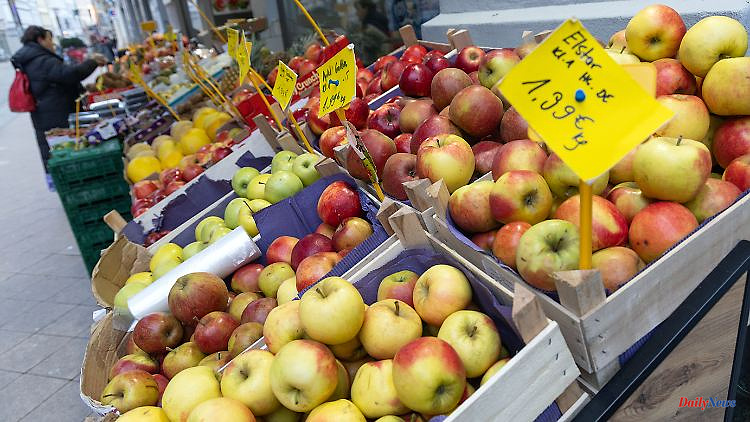After peaking in October, the price increase falls in the following two months. Now, however, the rate of inflation is likely to pick up again, say analysts. Some economists are even expecting a double-digit figure in January.
According to economists, the burden on German consumers from high inflation increased significantly in January. According to a survey of economists from twelve banks, consumer prices are likely to have risen by 9.2 percent compared to the same month last year. In December, the inflation rate fell to 8.6 percent, after having stood at 10.0 percent in November and even having reached 10.4 percent in October, the highest level in more than 70 years. Some of the economists surveyed even consider it possible that the rate of price increases will return to double digits at the beginning of the year. The Federal Statistical Office has announced the publication of an initial estimate for the week from February 6th to 10th.
"German consumer prices will shoot up significantly in January compared to the previous year," predict the analysts at BayernLB. They see several reasons for this. The statistical office has changed the weighting within the basket of goods used to determine the inflation rate. "Despite the corona pandemic, 2020 was chosen as the new base year, so services, package tours and culture will lose a lot of their weight, while household energy and goods will gain a lot," say the experts. "The consequence is likely to be a significantly higher rate of inflation."
In addition, the assumption of the gas and district heating deductions by the federal government had dampened inflation in December. "A counter-effect is planned for January," said BayernLB. In addition, electricity and gas prices are likely to rise to at least the price level set by the state in the energy price brakes. In addition, many sellers are particularly fond of using the turn of the year to raise prices.
"In January and February, a slight interim increase is still possible, but after that the trend should be downward over the course of the year," said the scientific director of the Institute for Macroeconomics and Business Cycle Research (IMK), Sebastian Dullien. For 2023 as a whole, he expects an inflation rate of just over five percent, after 7.9 percent in 2022, the highest value since the founding of the Federal Republic. "Germany has passed the peak of inflation and that will become increasingly apparent as the year progresses," said Dullien.












